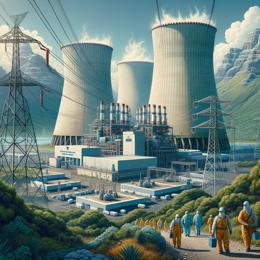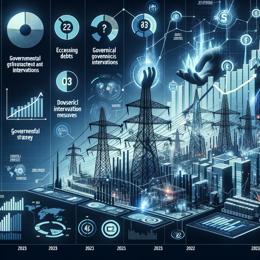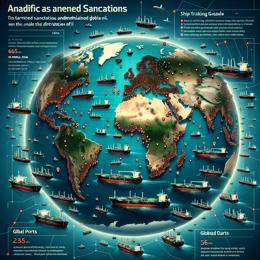Image created by AI
The End of an Era: Russia's Declining Gas Leverage Over Europe
On the brink of a significant transformation in European energy dynamics, Russia conducted one of its final gas transits to Europe via Ukraine this Monday, as the key five-year deal draws to a close at the year's end. This development underscores a pivotal moment in the fading influence of Russia on the European gas market, a dominion that has significantly dwindled since the onset of the Ukraine conflict.
The cessation of the transit agreement comes after Kyiv's decision against negotiating anew amidst an ongoing war with Russia nearing its third anniversary. Historically, Russia, including its Soviet era, shaped a substantial portion of Europe's energy landscape, peaking with a 35% share facilitated through robust pipeline networks. However, the 2022 invasion of Ukraine has drastically altered these circumstances, pushing major economies like the EU to pivot towards alternative energy sources such as Norway, the United States, and Qatar.
This strategic shift was propelled by dire necessities as the disruption in Russian gas supplies led to unprecedented hikes in gas prices across Europe, subsequently inflating the cost of living and stirring economic unrest by heightening inflation. Gazprom, Russia's state-controlled gas behemoth, reported its first annual loss since 1999, amounting to $7 billion in 2023, illustrating the severe impacts of the reduced EU market share on its operations.
In 2023, Russian gas exports through Ukraine dwindled to about 15 billion cubic meters, a mere 8% of its peak volumes to Europe in previous years. Despite this decline, the termination of this transit route is unlikely to mirror the gas price surges experienced in 2022 given the substantially lower volumes involved.
Further complications emerge as Gazprom plans to halt gas exports to Moldova over alleged unpaid debts, a move contested by Moldova which accuses Russia of exacerbating its political instability. The geopolitical tensions extend to Slovakia, where potential retaliatory measures against Ukraine have been discussed, intensifying the broader regional energy disputes.
As alternative routes through Belarus and the Baltic have been shut, including the significant Nord Stream pipeline sabotaged in 2022, Russia maintains limited operational conduits to Europe via the Blue Stream and TurkStream to Turkey, with certain volumes relayed to European nations including Hungary.
Amidst this backdrop, internal communications suggest Gazprom does not anticipate resuming gas flows through Ukraine post-2023. This stark transition marks not only a critical shift in Europe’s energy sourcing but also highlights a significant decline in Russia's geopolitical leverage, derived historically through its energy exports.










